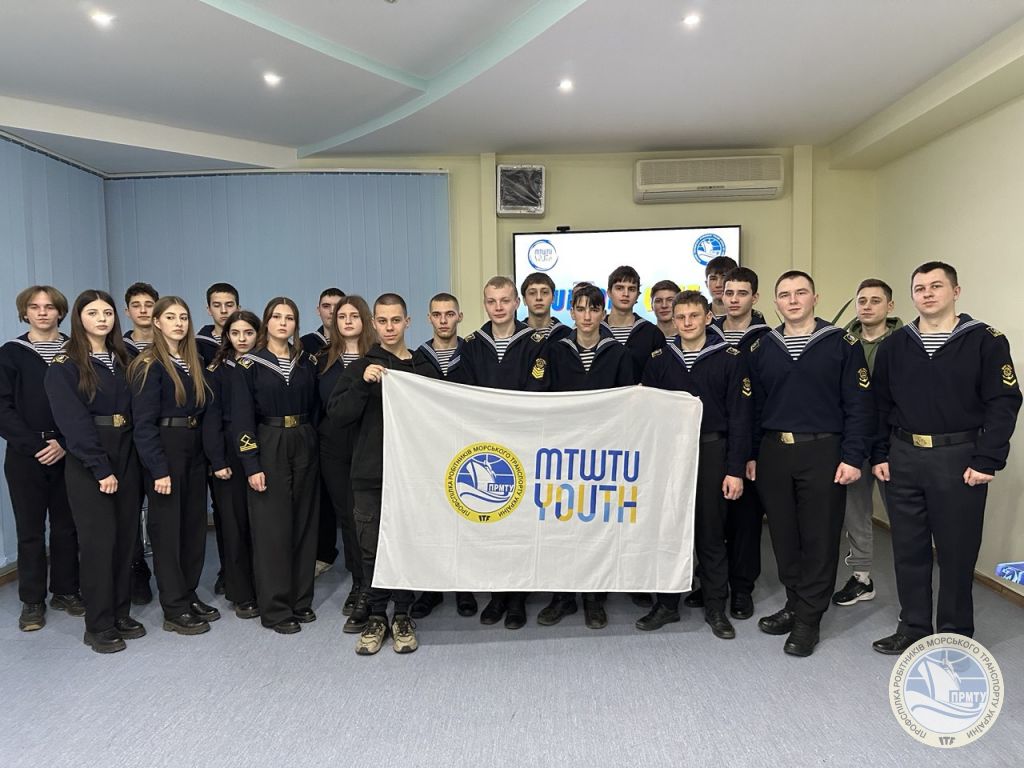On 4 December, the Marine Transport Workers' Trade Union of Ukraine, in cooperation with the Danish trade union 3F and with the support of the International Labour Organization Country Office in Ukraine, held a roundtable discussion on "Practical Application of the Maritime Labour Convention, 2006 for the Protection of Labour and Social Rights of Ukrainian Citizens – Seafarers".
The Roundtable was joined by members of the Ukrainian Parliament and their assistants, representatives of the Ministry of Economy of Ukraine, the Ministry of Foreign Affairs of Ukraine, the Ministry of Health of Ukraine, State Service for Maritime, Inland Waterway Transport and Shipping of Ukraine, the State Labour Service of Ukraine, leading maritime legal experts and other stakeholders.
The MLC, 2006 has been ratified by 105 countries and covers 96.6% of the total tonnage of the world's fleet. The Convention regulates such important issues for seafarers as the conditions for concluding a seafarer's employment agreement (contract), requirements for the repatriation of crew members, working conditions on board ships, requirements for accommodation, catering and dining services on board ships, the procedure and conditions for providing seafarers with medical care on board and shore, and standards for social protection of seafarers. The Convention also provides for an effective mechanism for shipowners to comply with the requirements of the Convention, as well as procedures for the control of ships by flag states and port states. The 2014 amendments to the MLC, 2006 also introduced a mechanism to guarantee financial liability for shipowners in the event of seafarers leaving their vessels unattended, or in the case of death or injury while working on board.
This makes the Convention the ‘Seafarers’ Bill of Rights‘ - a comprehensive instrument for the protection of seafarers’ labour and social rights. Unfortunately, Ukraine is the only major seafarer-supplying country in the world that has not yet ratified the MLC, 2006.
The MTWTU is perhaps the only lobbyist for the early ratification of this Convention by Ukraine. The MTWTU has repeatedly organised conferences, meetings, roundtables, and seminars with the largest Ukrainian crewing companies, international shipowners, ILO representatives to explain to the authorised authorities in Ukraine the importance, need and urgency of ratifying MLC, 2006 by Ukraine.
The MTWTU engaged the Ministry for Communities and Territories Development of Ukraine and the State Service for Maritime, Inland Waterway Transport and Shipping of Ukraine in discussions, sending numerous letters and appeals. It also constantly provides expert support, comments, and suggestions to the draft laws of Ukraine that were developed to implement the provisions of this Convention into Ukrainian national legislation.
“Ukrainian seafarers are currently scattered all over the world due to objective circumstances, which complicates the work of the Trade Union but makes it unique and extremely important to ensure real changes for all seafarers,” Oleg Grygoriuk said. “Ratification of the MLC, 2006 will signal to the international community that Ukraine cares about its seafarers and guarantees them protection and decent working conditions. This Convention is not only about protecting the rights of seafarers but also about establishing Ukraine as a strong maritime force. International standards are the basis for the guarantees that our seafarers should receive no matter where they are.”
Aida Lindmeier, Director of the ILO Country Office for Ukraine, who participated in the roundtable, expressed confidence in Ukraine's significant potential for developing its maritime sector, but there are still many challenges to be addressed.
Beatriz Vacotto, Head of the Maritime Unit in the International Labour Standards Department of the ILO, emphasized the importance of the Union's work. She believes that Ukraine is fortunate to have such intelligent and dedicated individuals who carry out their duties for the country's welfare, no matter the circumstances.
The main topics addressed included - Key provisions and instruments of the Convention; Practical application of the 2014 amendments to assist seafarers abandoned by shipowners; an overview of the 2018 amendments, as well as an overview of the draft amendments to the MLC, 2006, submitted to the Tripartite Committee to be held in April 2025. A separate topic of the Roundtable was the presentation of the Guidelines on Fair Treatment of Seafarers Detained on Suspicion of Committing Crimes.
The ITF Inspector in Ukraine, Nataliya Yefrimenko, delved into the challenges faced by Ukrainian seafarers during her presentation. Her speech was based on years of professional experience and relevant data from the past few years.
In the Black Sea region, the most common issues for seafarers are unpaid wages and employment agreement violations, which rank first and second among claims. Additionally, concerns often arise regarding the accessibility of collective or individual agreements — their absence, inconsistency with the national regulations of the flag state, or non-compliance with their terms creates significant challenges for seafarers. For two consecutive years, a significant challenge has been the vessels' non-compliance with international standards, which ranks fourth among regional issues.This issue directly impacts maritime safety in the region and poses risks to the seafarers’ lives. Particular attention was given to problems related to medical care and its accessibility, death cases on board, and associated insurance conditions. Equally pressing are issues involving seafarers work in War/Warlike areas, which were typical of both 2023 and 2024. Other alarming concerns include cases of seafarers' criminalization, seafarers' abandonment, and problems associated with ship's shipwrecks.
On a global scale, the statistical landscape of issues shifts slightly, but their core nature remains unchanged. Over the past two years, international standards non-compliance has consistently ranked first, as reported daily by ITF inspectors worldwide. Unpaid wages remain in second place, continuing to be a significant concern for seafarers worldwide. In 2024, problems related to medical care ranked third, while death cases on board occupied fourth place. In 2023, this fourth position was instead held by issues related to cargo handling carried out by crew members. Unfortunately, claims concerning potential criminalization and operation in War/Warlike areas remain among the top 10 pressing issues in recent years.
Statistics were also presented, highlighting the vessels' flag states where mentioned issues were most frequently reported.
All participants of the Roundtable expressed their full readiness to support the MTWTU's efforts to ratify MLC, 2006. MTWTU continues to strive for this goal to ensure a more stable, protected, and globally integrated future for Ukraine's maritime industry.










